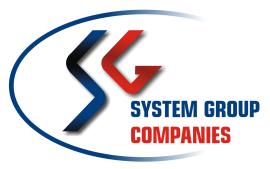In recent years, there has been growing concern about the impact of human activity on the environment, and businesses are no exception. Many companies are now taking steps to reduce their carbon footprint – the total amount of greenhouse gases (GHGs) that are emitted as a result of their activities.
Measuring a company’s carbon footprint is important for several reasons. Firstly, it helps to identify areas where the business can reduce its emissions, which can help to save money and improve efficiency. Secondly, it can help to demonstrate the company’s commitment to sustainability, which can be important for attracting customers and investors who are increasingly concerned about environmental issues. Finally, measuring a company’s carbon footprint is often a requirement for regulatory compliance.
There are many benefits to measuring and reducing a company’s carbon footprint. These include:
- Cost savings: By identifying areas where energy use can be reduced, companies can save money on utility bills and other expenses.
- Improved efficiency: By measuring and analyzing energy use, companies can identify inefficiencies and take steps to improve processes and reduce waste.
- Enhanced reputation: By demonstrating a commitment to sustainability, companies can improve their reputation with customers, investors, and other stakeholders.
- Regulatory compliance: Measuring a company’s carbon footprint is often a requirement for compliance with environmental regulations.
How does companies calculate their carbon footprint?
Calculating a company’s carbon footprint can be a complex process that involves gathering data on energy use and emissions across the entire value chain. The following steps are typically involved:
- Scope definition: Determine the scope of the carbon footprint, including the boundaries of the organization and the activities to be included.
- Data collection: Collect data on energy use and emissions across the organization and its value chain, including direct emissions from activities such as burning fossil fuels and indirect emissions from purchased electricity and other sources.
- Emissions calculations: Calculate the GHG emissions associated with each activity using internationally recognized protocols such as the Greenhouse Gas Protocol and ISO 14064.
- Reporting: Compile the data and report the carbon footprint, including emissions broken down by activity and recommendations for reducing emissions.
How can businesses reduce their carbon emissions?
There are many strategies that companies can use to reduce their carbon emissions, including:
- Energy efficiency:
- Improving energy efficiency through measures such as upgrading equipment, optimizing processes, and using renewable energy sources.
- Supply chain management:
- Working with suppliers to reduce emissions throughout the value chain.
- Carbon offsets:
- Investing in carbon offset projects that reduce emissions elsewhere to offset the company’s own emissions.
- Employee engagement:
- Encouraging employees to adopt sustainable practices and promoting awareness of environmental issues.
Measuring and reducing a company’s carbon footprint is becoming increasingly important in today’s business world. By taking steps to reduce their emissions, companies can save money, improve efficiency, and enhance their reputation with stakeholders. At System Group, we can help businesses measure their carbon footprint, identify areas for improvement, and develop strategies for reducing their emissions.
